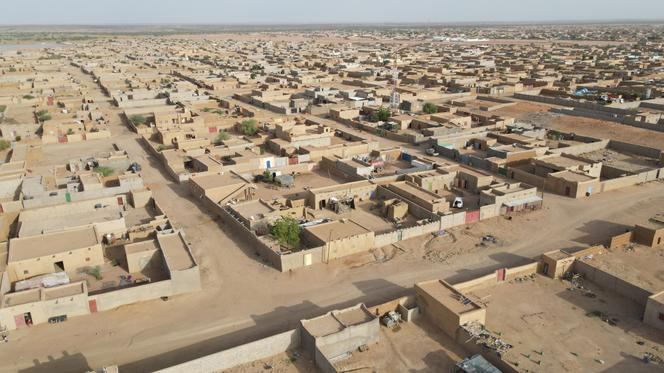


Five bodies, two of them young children, were lined up on a tarpaulin. Three others were piled into the back of a vehicle. The photos, forwarded to Le Monde by several local sources in Kidal, northeastern Mali, bear witness to the violence of three Malian army drone strikes on Tuesday, November 7, that targeted the outskirts of two military camps and a gathering of notables in this town, a Tuareg rebel stronghold. Some 14 civilians, including eight children, were killed and 30 wounded, according to the Permanent Strategic Framework for Peace, Security and Development (Cadre stratégique permanent pour la paix, la sécurité et le développement – CSP-PSD), which covers the politico-military groups, mostly the Tuareg and Arab-majority, back in rebellion.
The Malian army, which went on the offensive in August, effectively breaking the Algiers peace agreement signed between the two groups in 2015, has only acknowledged "air strikes" were carried out "against terrorist targets." "They targeted children," maintained Mohamed Elmaouloud Ramadane, spokesperson for the CSP-PSD. "They had come to recover equipment abandoned by the MINUSMA [United Nations mission in Mali] in the camp it had left."
Expelled by the ruling military in Bamako, MINUSMA, deployed in the country since 2013 to promote the return of the state after the war unleashed a year earlier by a coalition of armed independence and jihadist groups, began the accelerated withdrawal of its 13 bases in August, mainly in the north and center of the country. At the end of October, the Blue Helmet base at Tessalit in the Kidal region was taken over by the Malian armed forces, while the base at Aguelhok came under the control of the CSP-PSD.
"With the new dynamic following the withdrawal of MINUSMA and the military operations underway, Mali will recover its sovereignty over its entire territory. The government will ensure the effective redeployment of defense and security forces throughout the national territory," junta leader Colonel Assimi Goïta promised on national television on September 22.
Since coming to power, Goïta, transitional president since his second coup in May 2021, has defended a nationalist sovereignty line, which has made him popular in Bamako. His regime has made its objective the reconquest of the northern localities, so far largely controlled by those who are still ex-rebels. The final ambition is to reconquer Kidal, bastion of the four Tuareg insurrections that have shaken Mali since its independence in 1960, and symbol of the north's refusal to acknowledge the central state.
You have 55% of this article left to read. The rest is for subscribers only.
